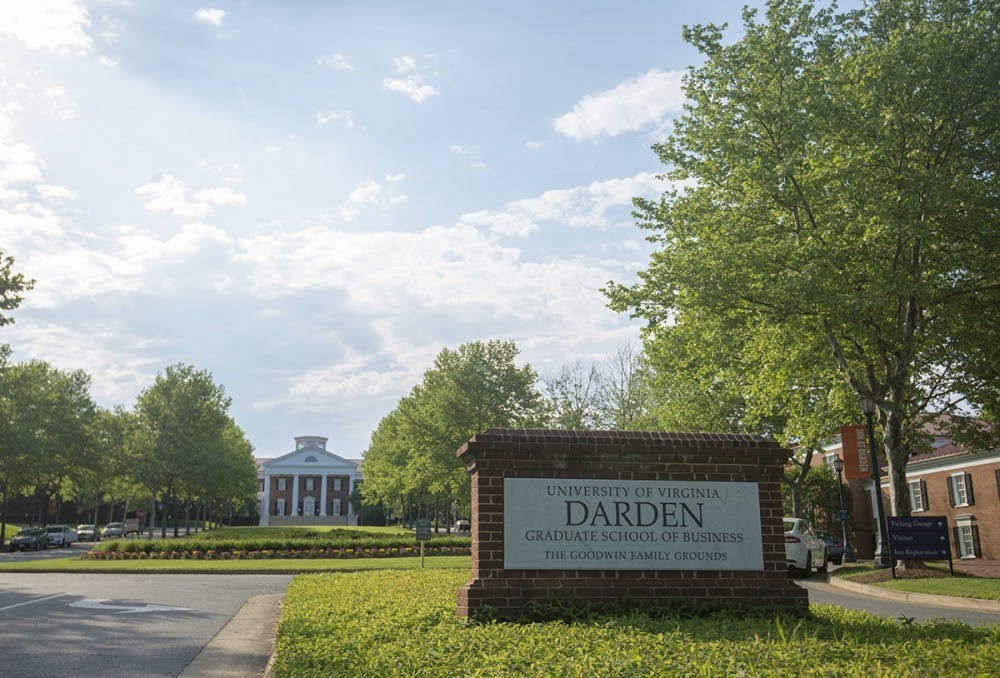The Buildings and Grounds committee for the University’s Board of Visitors met Thursday afternoon in the Rotunda boardroom, where the agenda included concept designs for two new hotel buildings. The committee also voted to name the Brandon Avenue upper-class residence hall Bond House, which is currently under construction for use in the fall.
The Board began the meeting discussing the naming of the Brandon Ave. student housing construction project, and the proposed name Bond House was approved unanimously. Bond House’s namesake, Julian Bond, was a professor of civil rights in the history department from 1992 until 2012. Bond also co-directed the Explorations in Black Leadership Project — which brought lectures and conversations by black leaders to Grounds — and led an annual civil rights tour and seminar for the University community.
Outside of his work at the University, Bond served 20 years in state government as a member of both the Georgia House of Representatives and Senate. Bond was also the first president of the Southern Poverty Legal Center from 1971 to 1979 and NAACP chairman from 1998 until 2010.
The resolution to name the construction project after Bond was presented by Colette Sheehy, senior vice president for operations for the University. Sheehy said Bond was an apt choice in carrying the tradition of naming University buildings after former faculty members.
“His reputation precedes him, I’m sure, so that’s what our recommendation is,” Sheehy said.
The decision to name the residence hall after a civil rights advocate comes in the wake of recent backlash against the vestiges of the University’s racist history evident in controversial building names such as Alderman Library and the Curry School of Education — former President of the University Edwin Alderman advocated for eugenics against people of color, and J.L.M. Curry supported slavery and secession from the Union during the Civil War. The new residence hall’s name was presented in conjunction with the selection of an architect for Commerce building renovations, and both consent agenda items were approved without objection or further discussion on the issue.
The Board then discussed the addition of the University Hotel and Conference Center to the major capital plan — the proposed 220,000 square foot hotel is expected to cost between $100 and $105 million. The hotel is to be located on what was formerly the site of The Cavalier Inn, which falls along the Ivy Corridor Landscape Framework Plan that the Board approved in 2016 and lies adjacent to the Ivy Emmett parking garage. The University is currently considering potential third party partners for project development.
Board members noted that the location is an ideal intersection for student and public life. Since the demolition of The Cavalier Inn, the site has been highly sought after as a space for students and faculty. Suggestions for what to construct on the site include inclusive facilities such as academic buildings, a performing arts center and potentially the new building for the School of Data Science. The Board discussed how the new hotel may serve as an “anchor” for future University projects that may expand upon the space.
University Architect Alice Raucher presented the vision for the site to Board members, saying the location addressed the concerns of former President Teresa Sullivan’s hospitality task force, as well as ideas presented by a task force commissioned by President Ryan to utilize the newly available space.
“Importantly, it leaves other primary sites available for the University-directed programs that will come out of President Ryan’s Emmett/Ivy task force,” Raucher said. “As has already been stated this past fall, President Ryan’s task force made the recommendation that the University Hotel and Conference Center was the desired anchor site, and that it would help establish active uses within the broad community.”
The Board later approved the concept, site and design guideline action items for the proposed University Hotel and Conference Center and for a revitalization of the Inn at Darden, which entails partial demolition of the current Inn and the addition of an arboretum to the site. The Inn is located near the Darden School of Business on North Grounds and currently holds 170 guest rooms and 40,000 square feet of conference space. Similarly to the concept of the University Hotel and Conference Center, the Inn and its green space is intended to open up the site to a broader community. The projected budget for the project is $90 million.
“The overall concept of the arboretum is that it is an amenity for all of North Grounds, the broader community. It ties into the Rivanna Trail,” Raucher said. “The intent is that the building would be very porous and open to the public… And that there will be accessible walks for one to get from the Inn and to the parking garage and just enjoy the arboretum.”
Donald Sundgren, associate vice president and chief facilities officer, presented the University’s infrastructural growth. According to Sundgren’s statistics from a 30-year facilities growth map, the University has increased its building infrastructure by 70 percent in the past 30 years — from 10.5 to 17.5 million square feet. Sundgren anticipated that this fiscal year’s construction spending would reach $270 million, as the University works on 65 to 70 capital projects — those which cost over $3 million — and 200 non-capital projects that fall below $3 million. This year’s spending would top last year’s record total of $240 million.





